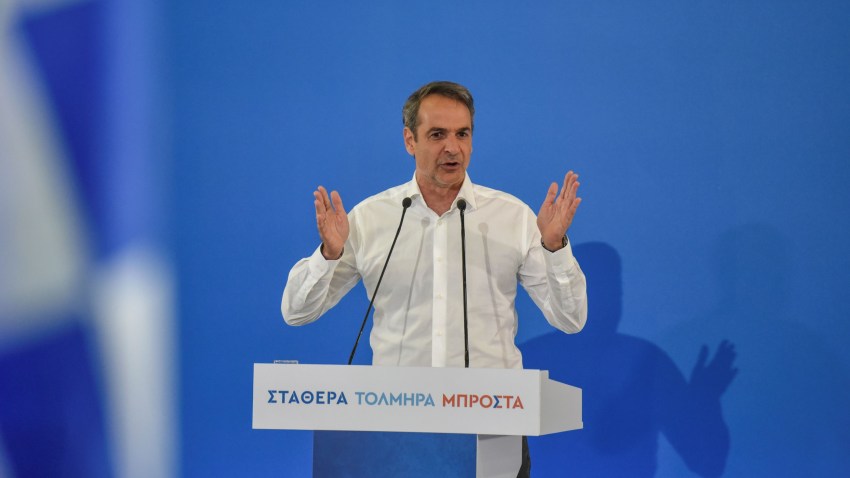Greek Prime Minister Kyriakos Mitsotakis won the country’s July 2019 elections promising to stabilize Greece’s economy and enact a law-and-order security agenda, both domestically and with regard to the refugees and asylum-seekers trying to reach Greek territory and already on it. In his own way, Mitsotakis has delivered on those promises. He hired thousands of new police officers, but cracked down mainly on political dissent. And he brought down the numbers of refugees reaching Greece, but resorted to illegal and extralegal methods to do so. Nevertheless, he and his ruling center-right New Democracy party face an uphill battle to hold onto power in snap elections that will take place on May 21.
Mitsotakis has been keen to campaign on his economic record. He claims to have overseen the creation of 300,000 new jobs, a 6 percent reduction in the unemployment rate and an increase in pension payments and the minimum wage. In GDP terms, Greece’s economy is performing well, with the Central Bank raising its growth forecast for this year from 1.5 percent to 2.2 percent.
However, these figures only tell half the story. In real terms, the increases in wages and pensions are in fact cuts, given that inflation is running at nearly 10 percent. Moreover, Greece’s debt is now at almost 180 percent of GDP, way higher than where it was before the 2010 debt crisis. Greeks are feeling the pain, exacerbated by the impact of profiteering that the authorities are failing to address. And despite the thousands of new police hires, crime rates are up.

